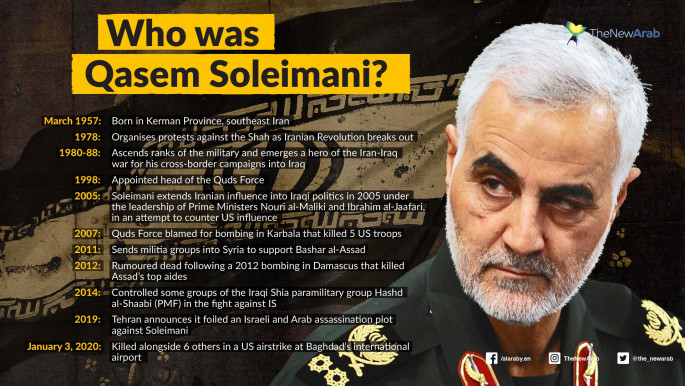US insists no plans to pull out of Iraq despite Baghdad's vote
President Donald Trump said withdrawing the more than 5,000 US troops in Iraq would be the "worst thing" for that country.
Defence Secretary Mark Esper underscored that US policy has not changed, dismissing as a mere "draft" the unsigned letter from a US general to Iraq's government saying Washington would redeploy troops "in due deference to the sovereignty" of the country.
"At some point we want to get out, but this isn't the right point," Trump said. "It's the worst thing that could happen to Iraq."
"Our policy has not changed. We are not leaving Iraq," Esper told reporters.
"There is no signed letter, to the best of my knowledge," Esper added.
Fallout from drone strike
Washington continued to defend itself from the fallout from its drone strike last Friday killing powerful Iranian General Qasem Soleimani just after he arrived in Baghdad from Damascus.
The killing of the key Iranian player in regional politics and security drew outrage from Iran and Soleimani's many supporters in Iraq.
On Sunday the Iraqi parliament voted in support of expelling US troops, and the idea gained force Monday when the letter from the head of Task Force-Iraq, US Brigadier General William Seely, announcing a US exit was revealed.
Seely wrote the US-led coalition would "be repositioning forces in the coming days and weeks to prepare for onward movement."
Trump and Esper strongly denied pullout plans, and Trump even suggested the letter could be a "hoax."
Twitter Post
|
Mystery letter
But its existence continued to ripple through Iraqi and US politics, with no explanation of why it was circulated.
"It was an official letter written in such a manner," Abdel Mahdi told a televised cabinet meeting on Tuesday.
"It's not a piece of paper that fell off the printer or reached us by coincidence," he said.
The letter discussed "redeploying with an aim to withdraw from the country. The expressions were very clear," he said.
But Trump warned that a US departure would leave a gap that would be filled by Iran, whose powerful political influence in Iraq was spearheaded by Soleimani.
"If we leave, that would mean that Iran would have a much bigger foothold, and the people of Iraq do not want to see Iran run the country. That I can tell you," Trump told reporters.
Read more: Iraq parliament demands foreign troops expulsion after Soleimani killing
"The Iraqi people were not happy when the suggestion was made yesterday that we were thinking about leaving at some point," he said.
"But at some point, we will want to leave."
US officials also defended the decision to kill Soleimani, who was a commander of the Islamic Revolutionary Guard Corps in charge of Middle East regional affairs, and who was considered one of the most powerful people in Iran.
While the White House and Pentagon continued to withhold details of the rationale for Friday's drone strike, Esper said Soleimani was planning imminent attacks against US assets.
"I think it's more fair to say days, for sure," Esper said.
Not a vacation
"They weren't there to discuss a vacation. They weren't there to go to a nice resort some place in Baghdad," Trump said of Soleimani and top Iraqi military figure Abu Mahdi al-Muhandis, also killed in the strike.
"They were there to discuss bad business, and we saved a lot of lives by terminating his life."
Esper said he fully expected Tehran to retaliate, and cautioned that while the United States "is not seeking a war with Iran, we are prepared to finish one."
"We are seeking a diplomatic solution but first, this will require Iran to de-escalate," he said.
"It will require the regime to come to the table with the goal of preventing further bloodshed."
Iran has already vowed "vengeance" for Soleimani, who was mourned by unprecedented crowds across the country Monday.
Meanwhile, a number of coalition members, including Canada and Germany, confirmed they would move their troops to Kuwait temporarily.
On the other hand, France and Italy said they would remain in the country and had no intentions of moving.
Agencies contributed to this report.



